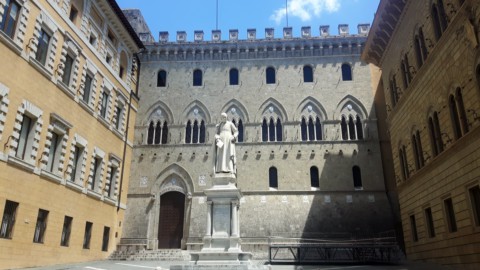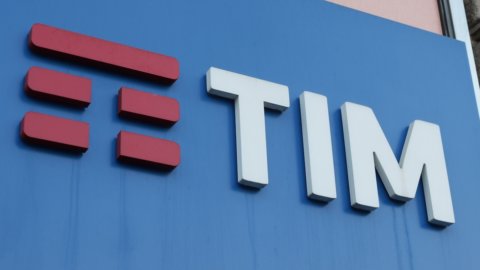Manufacturing is growing again in Europe and the stock exchanges are recovering. Piazza Affari, after eight sessions down, achieved a recovery of 1,51% and closed at 19.379 points, despite the contrasted performance of the banks. Sales are driven by Cnh +4,94%, Fiat +4,81%, Tenaris +4,74%, Prysmian +4,67%, encouraged by the recovery prospects.
The leader of the lists is Frankfurt +2,67%, followed by London +2,26%, Paris +1,93%, Madrid +1,43%. The start is also positive on Wall Street, where the Nasdaq moves to new record levels with the tech giants still on the rise. Microsoft gains 4,3% and confirms it wants to buy TikTok. US President Donald Trump has only cleared the deal for the popular Chinese video-sharing app if he manages to secure a deal within 45 days, Reuters says.
Tesla, +4,4%, celebrates the success of the Spacec X Dragon, which returned to Earth with a perfect landing.
The euro-dollar is declining, with the exchange rate at 1,1746. Gold futures are flat and currently trading at $1975,70 an ounce. Oil is progressing: Brent +1,45%, 44,15 dollars a barrel.
But it is in macroeconomic news that Europe finds the best ideas. The E19 manufacturing PMI in July rose to 51,8 against expectations of 51,1. This is the first growth in a year and a half. For Italy things went better than the average, because the index reached 51,9 compared to 47,5 in June. Finally we have gone beyond the 50 line that separates contraction and expansion. IHS Markit notes that the result hadn't been this good since June 2018, it is a sign of "overall improvement in the state of health of the Italian manufacturing industry" and is a higher than expected result. Germany is also starting again: 51 from 45,2 in June.
A restart that psychologically compensates for worries about the results of some large European banks such as SocGen (a loss of over 1,2 billion in the second quarter due to Covid) and HSBC (-96% profit in the same period), which at the however, they are slightly decreasing in Paris and London. In any case, the shock wave hits the banks in Piazza Affari where Mediobanca, -4,25%, closes in the dark. Banco Bpm also falls -1,81%, while outside the main price list Mps -5,75% and Bper -2,58% are down.
In contrast Ubi Banca +1,01%, which closed the second quarter with a profit of 90,7 million, well beyond expectations and an improvement of 81%. After filing away the accounting side, Victor Messiah takes advantage of the opportunity to announce his resignation, a predictable move by the number one of the former popular after the success of Intesa's Offer (+0,06%) on the Bergamo bank and pending the launch of the residual offer with consequent delisting. Fractional earnings also for Unicredit +0,4%.
In the other sectors, Atlantia closes a session in cash, +3,01%, on the day of the inauguration of the new bridge in Genoa. However, the first formal act of the Benetton family's disengagement from the Autostrade dossier will not be this Wednesday. Infrastructure Minister Paola De Micheli clarified this in an interview with Agorà, saying that the day after tomorrow there will be no signing of the memorandum to define the process for the sale of Aspi shares by Atlantia.
Ferrari's leap forward +3,87%, after the results in formula one and despite the fact that Covid hit hard on the accounts for the quarter: car deliveries fell by 48% to 1.389 units and revenues by 42% to 571 million EUR. Net income fell by 95% to 9 million euros.
Letter to Hera -3,54%. The secondary improves during the session and the closing is in green. The spread between Italian and German ten-year bonds fell to 153 basis points (-1,01%). The yield of the BTP stops at 1%.
However, the state accounts are getting worse. In July, the balance of the state sector closed, on a provisional basis, with a requirement of 7,2 billion euro, a deterioration of approximately 10,5 billion compared to July last year. A note from the Treasury explains that the borrowing requirement for the first seven months of 2020 is approximately 102,4 billion, an increase of approximately 72,3 billion compared to that recorded in the same period of 2019. increase of about 400 million.





